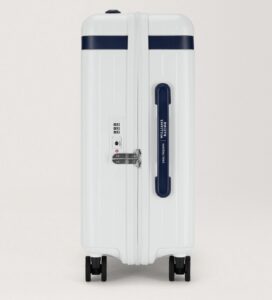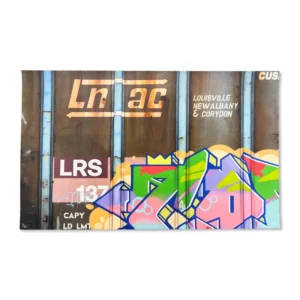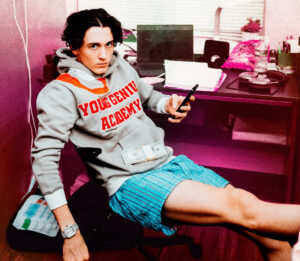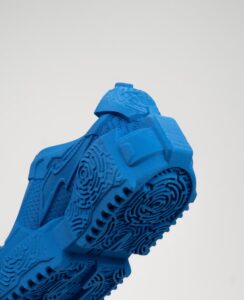
In the world of fashion, few figures have as much influence and insight as Law Roach. Known for styling some of the biggest celebrities in Hollywood, Roach has made a name for himself by crafting bold, transformative looks that not only push boundaries but also speak to a deeper philosophy: fashion as a form of powerful armor. Roach’s belief that clothing can serve as a shield, protecting us from life’s chaos, offers a refreshing and empowering take on the role of style in our everyday lives. Far from being merely superficial or decorative, fashion, in Roach’s view, is a tool that equips us to face the challenges of the world with confidence, resilience, and self-assurance.
The Origins of Roach’s Philosophy
Law Roach’s understanding of fashion as armor likely stems from his personal journey and the role clothing played in his life. Growing up on the South Side of Chicago, Roach witnessed firsthand the challenges that come with navigating difficult environments. For him, fashion became a way to express himself and rise above his circumstances. He has spoken in interviews about how dressing well gave him a sense of power and control in a world that often felt chaotic or oppressive. This early understanding of fashion’s transformative potential has clearly influenced his work as a stylist.
Roach’s philosophy also draws from a long history of using clothing as a form of protection, both physically and psychologically. Throughout history, garments have served to define social roles, offer physical protection, and even signify power and status. Armor itself, in the literal sense, has always been about shielding the body from harm. In the fashion world, Roach has taken this concept and applied it more broadly, suggesting that the right outfit can protect us from emotional, social, and even professional challenges.
This belief is central to how he approaches styling, particularly when working with high-profile clients who must often navigate the intense scrutiny of the public eye. Roach understands that clothing can serve as a defense mechanism—providing not just physical coverage, but psychological empowerment. It allows individuals to project strength, confidence, and control, even when they may feel vulnerable or exposed.
Fashion as a Tool for Empowerment
Roach’s work with celebrities like Zendaya, Celine Dion, and Anya Taylor-Joy exemplifies his philosophy of fashion as empowerment. Each of these women has been styled in ways that transform their public image, often using bold, unexpected looks to convey confidence and command attention. When Zendaya stepped onto the red carpet in a Joan of Arc-inspired Versace dress at the 2018 Met Gala, it was more than just a striking fashion statement—it was a visual representation of strength and resilience. The metallic armor-like dress, with its sharp lines and bold silhouette, reinforced the idea that fashion can be both beautiful and protective.
Similarly, Celine Dion’s late-career fashion renaissance, largely orchestrated by Roach, has been marked by daring, fearless looks that defy traditional expectations for a woman in her fifties. Dion’s bold choices—whether in head-to-toe couture or avant-garde streetwear—signal a woman who is not just keeping up with trends but using fashion to assert her identity and command respect. Roach’s styling of Dion suggests that age, much like any other perceived vulnerability, can be countered by fashion’s empowering qualities.
What sets Roach apart as a stylist is his ability to see beyond the fabric and silhouettes. For him, fashion is not just about creating an aesthetically pleasing look, but about crafting an image that conveys power and confidence. It is about giving his clients the tools they need to face the world with their heads held high, no matter what challenges they may be facing. This approach redefines the purpose of fashion—it is not simply about following trends or looking good for the cameras, but about arming oneself with the confidence and strength to navigate life’s complexities.
Challenging Traditional Perceptions of Fashion
Roach’s vision of fashion as armor challenges traditional perceptions of the industry, which is often dismissed as superficial or frivolous. In mainstream culture, fashion is frequently viewed as something that exists primarily for the gaze of others—a tool for attracting attention, enhancing physical appearance, or signaling wealth and status. However, Roach’s approach shifts the focus inward, emphasizing the psychological and emotional impact that clothing can have on the wearer.
By framing fashion as a form of armor, Roach elevates it from a tool of vanity to one of empowerment. This idea challenges the notion that fashion is purely about aesthetics, and instead positions it as something deeply personal and functional. Clothing becomes a way to control how we are perceived, but more importantly, it influences how we perceive ourselves. A well-chosen outfit can boost confidence, change a person’s demeanor, and even affect how they move through the world.
Roach’s philosophy also intersects with broader discussions about identity and self-expression. In a world where people are increasingly using fashion to assert their individuality and challenge societal norms, the idea of clothing as armor takes on new significance. For marginalized groups, fashion has long been a way to claim space and assert identity in a world that often seeks to diminish or erase them. Roach’s styling often amplifies these narratives, particularly in his work with Black women, where clothing is used as a tool of empowerment and resistance against societal pressures.
For instance, when Zendaya wore a homage to Donyale Luna—the first Black model to appear on the cover of “Vogue”—at the 2021 Oscars, it was more than just a tribute. It was a powerful statement about visibility, legacy, and the importance of representation in the fashion world. Roach’s work frequently incorporates such layers of meaning, using fashion not just to protect but to uplift and empower marginalized identities.
Impression
Beyond the cultural implications, Roach’s concept of fashion as armor has significant psychological benefits. Studies have shown that clothing can affect a person’s mood, behavior, and confidence—a phenomenon often referred to as “enclothed cognition.” The idea is that what we wear doesn’t just change how others see us, but also how we see ourselves. Roach intuitively understands this, which is why his work is so focused on empowering his clients from the inside out.
When a person feels confident in what they are wearing, it changes how they carry themselves, how they interact with others, and even how they approach challenges. This is the essence of Roach’s philosophy: fashion can protect us not only from external judgment or criticism, but from our own self-doubt. The right outfit can be a source of strength, giving us the confidence to take on whatever the world throws our way.
This is particularly relevant in high-pressure environments, such as red carpet events, where celebrities are constantly scrutinized and judged by the media and the public. For Roach’s clients, stepping onto the red carpet in a carefully curated outfit is not just about looking good—it is about feeling prepared to face the cameras and the crowd with confidence and poise.
Law Roach’s belief that fashion is powerful armor offers a transformative perspective on the role of clothing in our lives. For Roach, fashion is not just about aesthetics—it is about equipping individuals with the tools they need to face life’s challenges. Whether through bold, statement-making looks on the red carpet or everyday outfits that boost confidence, Roach’s approach to styling is rooted in the idea that what we wear can protect and empower us.
No comments yet.








